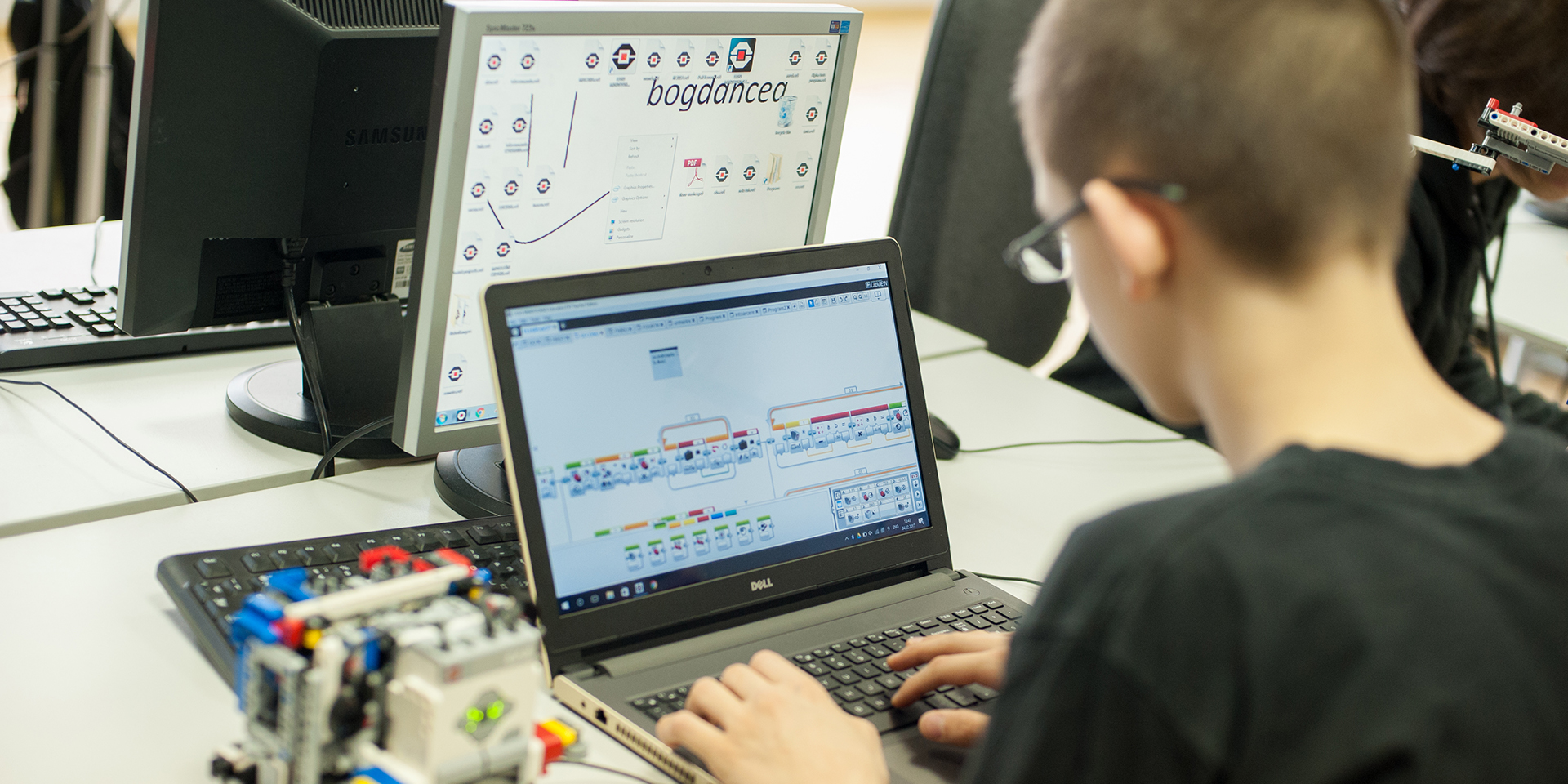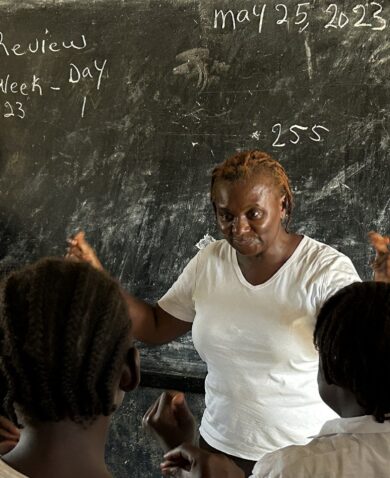
3 Questions with Florin Cazac and Andrei Copaci: Economic Opportunity for Youth
September 21, 2017 | 3 Minute ReadAfter competing in international robotics competitions, Andrei Copaci aspires to a career in engineering. He and his mentor reflect on how the program is preparing him for the workforce.
In this blog series highlighting youth economic opportunity, Florin Cazac and Andrei Copaci reflect on how robotics is shaping their personal and professional growth.
Can you tell us about your background with youth development and your career goals?
Florin Cazac: My name is Florin Cazac and I currently work as a robotics mentor at the Artico Children and Youth Center in Moldova. I am also a robotics programs manager at Tekwill. It is by chance that I ended up working with children; my educational background is in computer science. Everything started in August 2015 when I was recommended and employed with Artico. At that time, I didn’t know much about LEGO MINDSTORMS robotics. It is a series of kits for building, programming, and commanding your own LEGO robots. Artico was one of the first institutions to pilot extracurricular activities using these robotics sets. I had to learn it very quickly to be able to teach children. Gradually, it became a big success. Currently, the team I mentor has won multiple championships in local robotics competitions. Also, we had the opportunity to take part in several international contests in Estonia, Spain, Denmark, and the United States. Now my goal has broadened. In addition to preparing teams for competitions, I am involved in promoting STEM careers and developing programs to improve the quality of robotics education in my country.
Andrei Copaci: I am a 14-year-old school student in seventh grade. In the future, I would like to become an engineer, because I have been interested in the technology field since I was a young child.
How has your relationship with the Moldova Competitiveness Project (MCP) helped you work toward these goals?
Florin Cazac: MCP has helped me a lot in my professional growth. The project has supported my initiatives and responded to the needs of the robotics club I was mentoring. They helped us upgrade the equipment used for our classes. They also encouraged me to develop and test new types of practical activities, which will later be proposed to other teachers for implementation. I was also very happy when MCP supported me in the organization of a three day robotics camp during the school vacation. The camp ended with a Sumo Bot Challenge, a very fun and engaging competition where students learn how to work as engineers. They learn to apply their knowledge in designing, building, and programming strong robots that are capable of pushing other robots out of a ring. One year later, we are already organizing this challenge at a national level.
Andrei Copaci: The Competitiveness Project has helped me a lot in clarifying my career aspirations. My passion for robotics started developing three years ago when I joined the robotics club at Artico, established with support from MCP. My role in the team is mechanical engineering, but I am also involved in robot programming. During our robotics classes and preparation for competitions, I am very much engaged in creating robots. My performance and dedication for robotics has helped me not only become part of the best robotics team in Moldova, but also to participate in various international competitions in Estonia, Spain, Denmark, and even the United States. I participated in the largest science and technology competitions in the world for the high school teams with youth between nine and 16 years old — FIRST LEGO League and FIRST Global Challenge. These are the robotics Olympics, supported by the U.S. FIRST Foundation and many other partners.
What do you see as the biggest opportunity and the biggest challenge for the “future of work” in Moldova, especially for young STEM professionals?
Florin Cazac: In my opinion — as a mentor involved in robotics education in Moldova — the biggest challenge is for our students to be able to continue their STEM education and to build future careers in STEM fields in our country. They need to be able to apply the knowledge and skills they are learning in robotics classes. This will only be possible if the higher education institutions’ programs and infrastructure get upgraded and the information and communications technology (ICT) sector continues to develop rapidly, providing more opportunities for future engineers and technology leaders.
Andrei Copaci: The biggest challenge for me, and my biggest dream, is to create robots that would replace or make easier many difficult professions. I think the future of Moldova depends a lot on robotics and I envision advanced robots will appear in our country, helping our lives improve. Until then, I am trying to promote engineering fields and engage as many children as possible with robotics so they can see how interesting and fun it is.
Learn more about the Moldova Competitiveness Project and Chemonics’ work related to youth and economic growth.
































